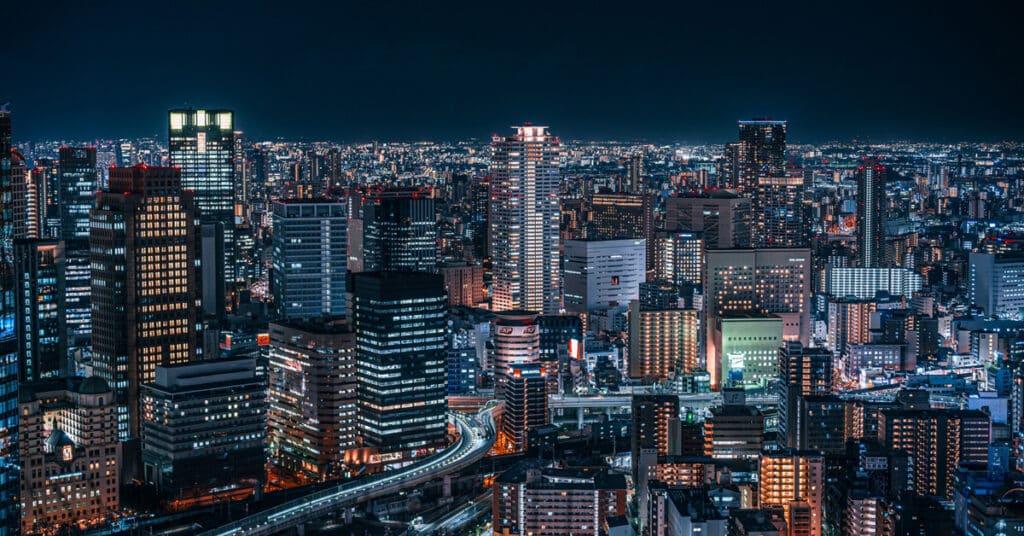In recent years, the expansion of foreign hotel chains in the Japanese market has been accelerating. Global luxury and high-end hotel chains such as Marriott International, Hilton Worldwide, IHG Hotels & Resorts, and AccorHotels are continuously opening new accommodations across Japan. The key drivers behind this trend include government deregulation and the increasing number of inbound foreign travelers. As a result, Japan’s tourism market is being reevaluated by foreign companies as a promising area for further market growth.
Luxury Hotel Openings Concentrated in Tokyo and Kyoto
In April 2023, the Italian luxury brand Bulgari made its debut in Japan with the opening of Bulgari Hotel Tokyo in the Marunouchi area. This ultra-luxury hotel features standard rooms with an average nightly rate exceeding 200,000 JPY, while some suites cost over 4 million JPY per night, catering to an exclusive clientele of ultra-high-net-worth individuals.
Kyoto, a major destination for inbound tourists, has also seen a surge in the development of foreign luxury hotels. Starting in 2024, Six Senses Kyoto and Banyan Tree Higashiyama Kyoto are set to open, offering spaces that seamlessly blend traditional Japanese aesthetics with modern luxury—an appeal that resonates with affluent travelers both domestically and internationally.
At GARDE, we have designed numerous hotel spaces, including projects featured in a past issue of DESIGN MAGAZINE, such as Hyatt House Tokyo Shibuya and Candeo Hotels Kyoto Karasuma Rokkaku. These properties have seen a significant influx of foreign visitors, further highlighting the rapid growth of Japan’s hospitality market.
The Rise of Foreign Hotel Brands in Japan – Driven by Yen Depreciation and Growing Tourism Demand
It goes without saying that the aggressive expansion of foreign hotel brands in Japan is largely influenced by two key factors frequently covered in the news: the recovery of tourism demand post-COVID-19 and the depreciation of the yen. According to the Japan National Tourism Organization (JNTO), the number of inbound foreign tourists in 2023 rebounded to pre-pandemic levels, even reaching a record high. In response, the Japanese government has set an ambitious goal of attracting 60 million inbound travelers and generating 15 trillion yen in tourism revenue by 2030.
To achieve this, the government is actively supporting the expansion of luxury accommodations, including regulatory changes to facilitate larger guest rooms by easing floor area ratio restrictions for hotels. These policy adjustments have made it significantly easier for international hotel brands to enter and expand in the Japanese market.
Blending Architectural Design with Cutting-Edge Technology
Foreign luxury hotels in Japan are more than just places to stay—they serve as unique brand statements, seamlessly integrating local culture into their architecture and interior design.
For instance, The Ritz-Carlton Kyoto incorporates Japanese gardens, washi paper, tatami mats, shoji screens, and natural wood, creating an immersive space that reflects Kyoto’s rich cultural heritage. Similarly, Aman Tokyo, located in the city’s Otemachi district, blends sleek modern high-rise architecture with traditional Japanese elements such as stone, wood, and washi paper, embodying a refined, minimalist aesthetic inspired by “wa” (harmony).
More recently, luxury and high-end hotel brands have embraced digital transformation (DX) by integrating IoT technology and smart room systems, such as AI-powered voice control and automated room management assistants. These innovations enhance the guest experience by providing a seamless and personalized stay, further distinguishing these hotels in an increasingly competitive market. The fusion of tradition and advanced technology is becoming a defining strength of foreign hotel brands in Japan.
Conclusion
The expansion of foreign hotel brands in Japan shows no signs of slowing down, with increasing competition among luxury hotels pushing brands to differentiate themselves through culturally sensitive design and exclusive services.
Additionally, with a growing focus on sustainable tourism, hotels are expected to adopt eco-conscious architectural practices and energy-efficient technologies. The industry as a whole is moving toward sustainability-driven operations, aligning with broader global trends.
Backed by rising tourism demand and supportive government policies, not only foreign hotel brands but also new players are expected to enter the Japanese market, contributing to the continued growth of the hospitality sector.
GARDE Design Magazine provides project portfolio, trends in architecture, design, and art, and event information.
The project portfolio and the latest information on GARDE are now available on our official website.
>Click here to visit our project portfolio.
>Click here for the latest information on GARDE

